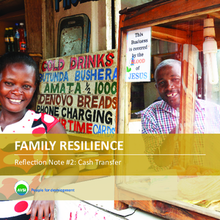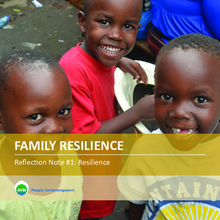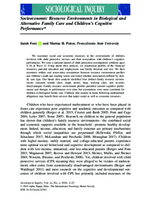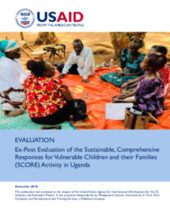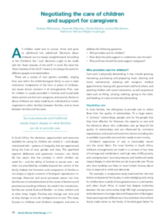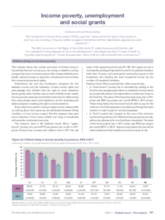Displaying 51 - 60 of 271
This Reflection Note is intended as a means for AVSI staff and implementing partners on the FARE project to capture emerging learning as relates to the theory of change elaborated during project design. Particularly, the Reflection Note seeks to answer how necessary and effective cash transfers are as a component of the economic strengthening pathway, hypothesized as crucial for the project goals of building family resilience as a means of preventing child-family separation or ensuring successful reintegration of children into family care.
This Reflection Note is intended as a means for AVSI staff and implementing partners on the FARE project to capture emerging learning as relates to the theory of change elaborated during project design.
The primary goal of the ASPIRES project is to support gender-sensitive programming, research and learning to improve the economic security of highly vulnerable individuals, families and children.
The authors of this article examined social and economic resources in the environments of children involved with child protective services and their associations with children's cognitive performance.
This qualitative study sought to explore the perspectives of a group of South African caregivers, all of whom were in receipt of a Child Support Grant (CSG), in relation to their own caregiving and family functioning.
This ex-post evaluation examines the sustainability of outcomes from USAID’s Sustainable, Comprehensive Responses for Vulnerable Children and their Families (SCORE) activity.
Using data from age 3 of the Fragile Families and Child Wellbeing Study, the current study explores the complex relationships between U.S. childcare subsidies and neglect.
This chapter from the South African Child Gauge 2018 focuses on childcare and children’s caregivers in South Africa and aims to address the following questions: Who provides care for children? How does the state support or undermine care choices? Why and how should the state support caregivers?
This chapter from the South African Child Gauge 2018 provides an overview of children living in poverty in South Africa, highlighting those living in households without an employed adult.
This video presents the work of the FARE family strengthening program in Uganda to prevent separation of families and reintegrate children who are separated from their families, including the story of one young person and his family who were impacted by the program.

